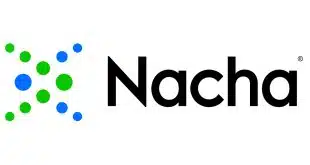The electronic funds transfer networks continue to diversify their services as competition for merchant and issuer business in debit payments intensifies. The latest example comes from processor Fiserv Inc.’s Accel network, which says Walmart Inc. is using its service for signature-based debit card transactions.
Walmart typically prompts customers paying with debit cards to enter their PIN. But if the customer wants to sign for the purchase, the Accel service routes the transaction over its network rather than the Visa Inc. or Mastercard Inc. networks, even though the customer’s card invariably will have one of those two logos on the front.

“Now what we’ve done is to enable that to happen on what is traditionally a signature-based transaction,” Carol Specogna, vice president of product strategy in Brookfield, Wis.-based Fiserv’s Card Services unit. “It’s all up to the merchant.”
Under the Federal Reserve’s Regulation II, which implements the Durbin Amendment to the 2010 Dodd-Frank Act, a debit card must provide merchants with a choice of at least two unaffiliated networks for transaction routing. Most issuers complied by keeping a global network logo such as Visa’s or Mastercard’s on the front of the card for signature transactions, while the back would display the logo of an EFT network such as Accel for PIN-based transactions.
But in the past few years, the EFT networks have been broadening their services and are now directly challenging Visa and Mastercard on their signature turf, which accounts for the majority of debit transactions.
“There’s been just an evolution in our market, primarily since Regulation II was enacted,” says Specogna. “Issuers have had interchange rate reductions, and merchants have more routing options. We’ve really taken the opportunity to improve the net economics for both merchants and the issuers.”

A spokesperson for Bentonville, Ark.-based Walmart, a strong proponent of PIN-based debit, did not respond to a Digital Transactions News request for comment. But in a press release last week, Mike Cook, Walmart senior vice president and assistant treasurer, said customers see no difference at the checkout counter.
“For Walmart, the cost savings from this additional routing option will quickly add up, allowing us to further invest in price and the customer experience,” Cook said.
Michael Moeser, director of payments practice at Pleasanton, Calif.-based Javelin Strategy & Research, says if PIN-debit networks want to grow, they need to target signature transactions.
“Walmart’s quick adoption of this competitive [service] is a clear signal that retailers want more options for signature transactions, and are willing to reward those networks that offer them,” Moeser says in an email message.
The service Walmart is using is just one in an assortment of new routing services that Accel introduced for point-of-sale and online debit transactions over the past couple of years. Accel and its surviving EFT network cohorts originally offered only PIN-authenticated transactions, which used a so-called single-message format in which the authorization and clearing and settlement functions were contained in one message. Traditional signature-debit transactions went over the Visa and Mastercard networks in so-called dual-message format, one for authorization and, later, another for clearing and settlement.
Now Accel and other EFT networks, including First Data Corp.’s Star , have gotten into dual-message debit, not to mention PINless debit for low-risk transactions. Come April, Accel, like Visa, Mastercard, American Express Co. and Discover Financial Services, will offer merchants the option of forgoing signatures in transactions that formerly would have called for one.
“All the EFT debit networks are very engaged directly with retailers, working with them to offer options for PIN, PINless, dual- and single-message transactions,” Sarah Grotta, director of the debit-advisory service at Maynard, Mass.-based Mercator Advisory Group Inc., tells Digital Transactions News by email. “Retailers of all sizes with the right software embedded within their point-of-sale devices will then have more options around network routing based on parameters such as the networks available on the card, the cost to the merchant for each network, and the relative risk of the specific transaction.”





